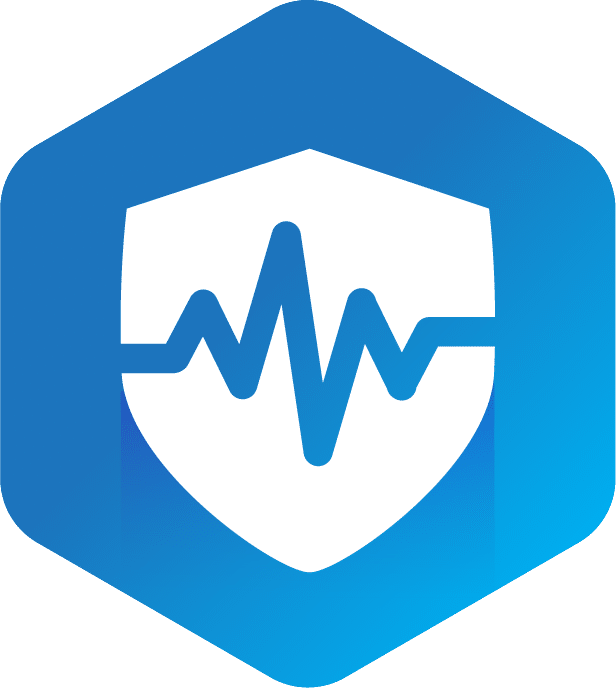Are you curious about the differences between HIPAA and Canada’s PHIPA? Look no further!
This article will explore the variances in these two privacy regulations.
HIPAA, or the Health Insurance Portability and Accountability Act, is a federal law in the United States that governs how healthcare providers handle protected health information.
On the other hand, PHIPA, which stands for Personal Health Information Protection Act, is specific to Canada and regulates how personal health information is handled within its borders.
While both regulations aim to protect individuals’ privacy and security, they differ in their scope of regulation, privacy and security standards, as well as enforcement and penalties.
By understanding these distinctions, you can better understand how healthcare data is managed on either side of the border.
So let’s dive in and discover what sets HIPAA and PHIPA apart!
So, you’re probably wondering what exactly HIPAA is and how it affects you. Well, let me break it down for you in a way that’s easy to understand.
HIPAA stands for the Health Insurance Portability and Accountability Act, which is a privacy law in the United States. It was enacted to protect individuals’ personal health information (PHI) by setting standards for its security and confidentiality.
HIPAA applies to healthcare providers, health plans, and other entities that handle PHI. It gives patients control over their own health information and limits its disclosure without consent. This means that your medical records are kept private unless you give permission to share them.
In contrast, Canada has its own privacy laws called PHIPA (Personal Health Information Protection Act) and PIPEDA (Personal Information Protection and Electronic Documents Act), which have similar goals but differ in specific regulations.
PHIPA provides a comprehensive framework to protect the privacy of individuals’ personal health information, ensuring peace of mind for Canadians. In Ontario, PHIPA is the key legislation that governs the collection, use, and disclosure of personal health information in the healthcare sector. Similar to HIPAA in the United States, PHIPA aims to safeguard sensitive health data and maintain patient confidentiality.
To better understand the differences between PHIPA and HIPAA, let’s take a look at this comparison:
| HIPAA | PHIPA | |
|---|---|---|
| Location | United States | Ontario, Canada |
| Legislation Name | Health Insurance Portability and Accountability Act (HIPAA) | Personal Health Information Protection Act (PHIPA) |
| Scope | Nationwide coverage for all healthcare providers/organizations handling protected health information (PHI) | Provincial coverage specifically for healthcare providers/organizations in Ontario |
| Enforcement Agency | Office for Civil Rights (OCR) under the U.S. Department of Health and Human Services (HHS) | Information and Privacy Commissioner of Ontario (IPC) |
This table highlights some key differences between HIPAA and PHIPA regarding their geographical jurisdiction, legislation name, scope of coverage, and enforcement agency. Understanding these variations helps ensure compliance with the appropriate regulations while handling personal health information in both countries.
To fully understand the extent of regulation, you should consider the scope of coverage provided by both HIPAA and PHIPA.
HIPAA, which stands for Health Insurance Portability and Accountability Act, is a federal law in the United States regulating health information protection. It applies to covered entities such as healthcare providers, health plans, and clearinghouses.
On the other hand, PHIPA, or Personal Health Information Protection Act, is a provincial law in Canada that governs the collection, use, and disclosure of personal health information by healthcare organizations. It is applicable to custodians defined under the act like hospitals and clinics.
Additionally, Canada has other privacy legislation at a federal level such as the Personal Information Protection and Electronic Documents Act (PIPEDA) and Privacy Act which institutions like Information and Privacy Commissioner oversee.
Privacy and security standards are crucial in safeguarding personal health information, ensuring its protection from unauthorized access or disclosure. When comparing HIPAA and Canada’s PHIPA, there are some differences in the privacy and security standards they enforce. Here are five key points to understand:
Understanding these differences can help healthcare organizations ensure they comply with the appropriate regulations when handling personal health information.
Ensuring compliance with the enforcement and penalties of HIPAA and PHIPA is crucial for healthcare organizations, as failing to do so can result in significant consequences that may negatively impact your reputation and financial stability.
Both regulations aim to protect personal health information (PHI) and have strict guidelines in place.
HIPAA, enforced by the U.S. Department of Health and Human Services (HHS), sets forth civil monetary penalties for violations ranging from $100 to $50,000 per violation, with an annual maximum penalty of $1.5 million. In addition to monetary fines, criminal charges can also be pursued for intentional PHI breaches.
PHIPA, enforced by the Information and Privacy Commissioner of Ontario (IPC), imposes administrative monetary penalties up to $500,000 for non-compliance. The IPC has the authority to conduct investigations and audits to ensure adherence to privacy requirements.
Both HIPAA and PHIPA emphasize the importance of compliance with privacy regulations regarding personal health information. Failure to comply can lead to severe penalties under both frameworks.
What is HIPAA?
HIPAA stands for the Health Insurance Portability and Accountability Act. It is a federal law in the United States that sets standards for protecting patients’ sensitive health information.
What is PHIPA?
PHIPA stands for the Personal Health Information Protection Act. It is a privacy law in Ontario, Canada that governs the collection, use, and disclosure of personal health information by health information custodians.
What is the difference between HIPAA and PHIPA?
HIPAA is a federal law in the United States, while PHIPA is a provincial law in Ontario, Canada. HIPAA applies to covered entities across the United States, while PHIPA applies specifically to health information custodians in Ontario.
What is the HIPAA Privacy Rule?
The HIPAA Privacy Rule is a set of regulations establishing the standards for using and disclosing individually identifiable health information by covered entities. It provides patients with certain rights over their health information.
What does PHIPA regulate?
PHIPA regulates the collection, use, and disclosure of personal health information by health information custodians in Ontario. It also sets out rules for individuals’ access to their own health information and the retention and disposal of health records.
Do HIPAA and PHIPA apply to the same entities?
No, HIPAA and PHIPA apply to different entities. HIPAA applies to covered entities, which include healthcare providers, health plans, and healthcare clearinghouses in the United States. PHIPA applies to health information custodians in Ontario.
What is a health information custodian?
A health information custodian is an individual or organization that has custody or control of personal health information as a result of the person’s practices or work as a health care practitioner or provider of health care services.
What is a service provider in the context of HIPAA and PHIPA?
In the context of HIPAA and PHIPA, a service provider is an individual or organization that provides services to a covered entity or health information custodian and requires access to personal health information to provide those services.
Is PHI the same as personally identifiable information?
Yes, PHI (Protected Health Information) under HIPAA and personally identifiable information (PII) refer to the same concept. Both terms refer to any information that can be used to identify an individual and is related to the individual’s past, present, or future health condition or treatment.
How can I ensure my organization is HIPAA compliant?
To ensure your organization is HIPAA compliant, it is important to conduct a thorough risk assessment, establish and implement privacy and security policies and procedures, train employees on HIPAA requirements, and regularly monitor and audit compliance.
So there you have it, now you know the key differences between HIPAA and PHIPA.
While both regulations aim to protect personal health information, HIPAA has a broader scope and stricter privacy and security standards.
Additionally, HIPAA carries more severe penalties for noncompliance.
On the other hand, PHIPA focuses specifically on the province of Ontario in Canada.
Understanding these distinctions is crucial for healthcare professionals and organizations operating in both jurisdictions to ensure compliance with the appropriate regulations.

